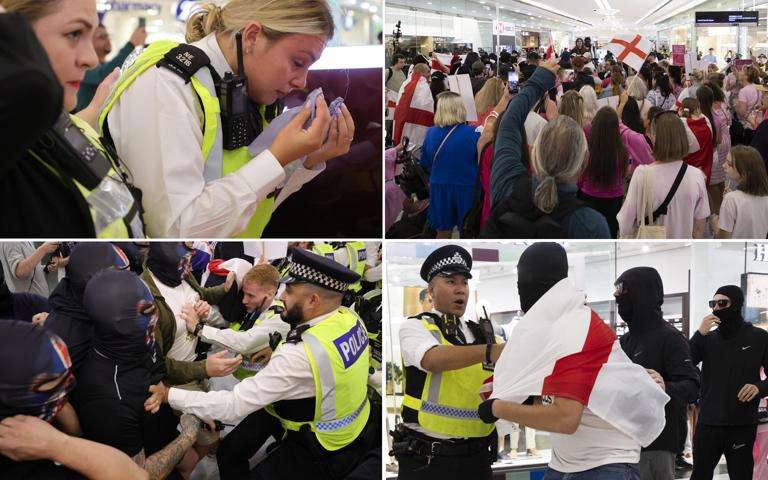Victims are demanding harsher sentencing for perpetrators of violence against women in Northern Ireland, where femicide has reached what campaigners describe as epidemic levels.
Since 2020, 28 women and girls have been killed violently — the highest rate across the UK and Ireland, and among the worst in Europe.
The most recent case saw 45-year-old Vanessa Whyte and her teenage children, James and Sara, fatally shot in their Maguiresbridge, Co Fermanagh home on 23 July. The sole suspect, her husband Ian Rutledge, later died from a self-inflicted gunshot wound.Sarah Montgomery was killed while pregnant with her third child. Pic: PSNI
Just weeks earlier, Sarah Montgomery, a 27-year-old mother of two who was pregnant with her third child, was murdered in Donaghadee. A man has since been charged with her killing.
Dr Susan Lagdon, senior psychology lecturer at Ulster University, described the justice system as a "secondary form of victimisation" for women, urging a more victim-focused approach and stronger sentences. Ulster University research has revealed that 98% of women surveyed in Northern Ireland had suffered abuse or violence — a figure it called “eye-watering.”
Dr Lagdon said no single factor explained the crisis, instead pointing to a “perfect storm” of influences — from the legacy of conflict and violence to distrust of authority, which can discourage reporting abuse and leave victims vulnerable.
Her concerns are echoed by equestrian athlete Abigail Lyle, who was assaulted by her ex-partner, showjumper Jonathan Creswell. He received only a six-month prison term. Following his release, he was charged with murdering showjumper Katie Simpson in 2020. Creswell later took his own life during his trial in 2024.
“You live with survivor’s guilt,” said Abigail, reflecting on Katie’s death. “Every violent encounter with him could have ended my life. Every single one was terrifying.”
Journalist Tanya Fowles, who first raised concerns over Katie Simpson’s death, said Northern Ireland is facing an epidemic of domestic killings:
“If women being murdered at home by their partners were instead police officers being killed on duty, there would be outrage.”
Fowles believes sentencing remains too lenient and attitudes toward victims are deeply flawed. “These are not ‘tragedies,’ they are murders,” she said, adding that sentences must be meaningful to reflect the harm caused.
The office of Lady Chief Justice Dame Siobhan Keegan noted that sentencing is bound by legislation set by the Department of Justice, but highlighted that recent reforms require courts to treat domestic abuse as an aggravating factor in sentencing.
The Northern Ireland Executive launched a strategy last year to tackle violence against women and girls, though few expect quick results.
Abigail, now living in England, remains cautiously hopeful but blunt in her assessment: “It’s really sad, but women are taking the brunt of it — because they’re easy targets.”
Support is available: In the UK, call Samaritans at 116 123 or Women’s Aid Northern Ireland at 08088021414.
_8.jpg)
_5.jpg)
_8.jpg)




_3.jpg)
.svg)



